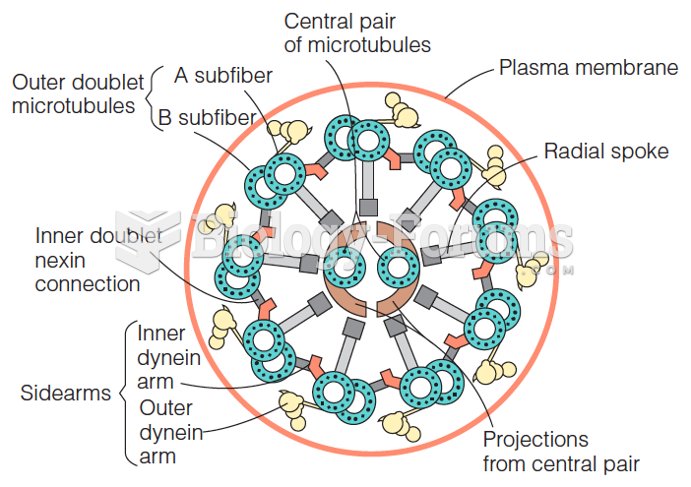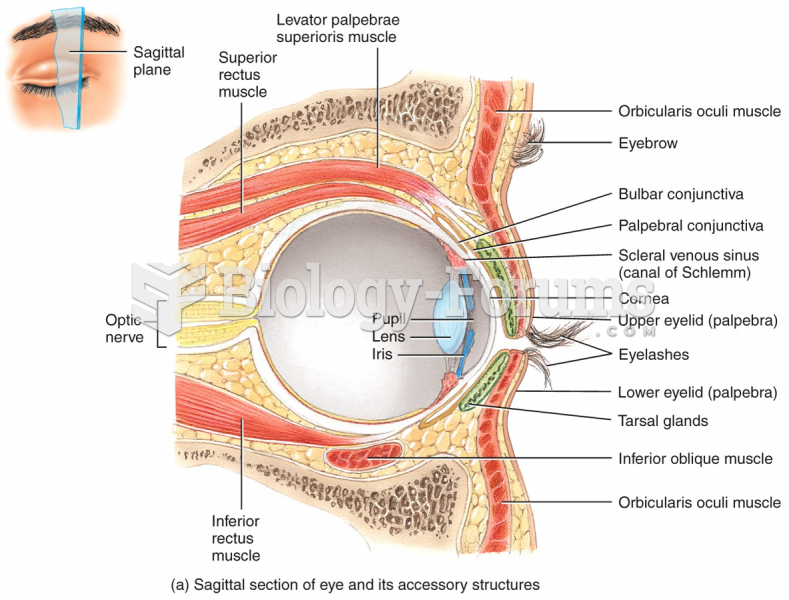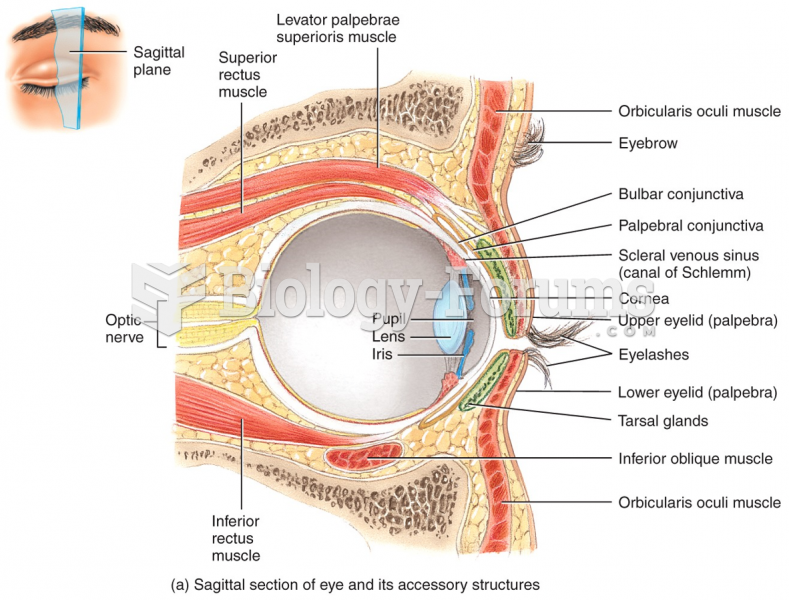|
|
|
In 2010, opiate painkllers, such as morphine, OxyContin®, and Vicodin®, were tied to almost 60% of drug overdose deaths.
Most women experience menopause in their 50s. However, in 1994, an Italian woman gave birth to a baby boy when she was 61 years old.
The modern decimal position system was the invention of the Hindus (around 800 AD), involving the placing of numerals to indicate their value (units, tens, hundreds, and so on).
It is believed that the Incas used anesthesia. Evidence supports the theory that shamans chewed cocoa leaves and drilled holes into the heads of patients (letting evil spirits escape), spitting into the wounds they made. The mixture of cocaine, saliva, and resin numbed the site enough to allow hours of drilling.
Bacteria have flourished on the earth for over three billion years. They were the first life forms on the planet.
 Body cavities. (A) Lateral view of a sagittal section through the body. (B) Anterior view of a front
Body cavities. (A) Lateral view of a sagittal section through the body. (B) Anterior view of a front
 Localization of a Peptide The peptide is revealed by means of immunocytochemistry. The photomicrogra
Localization of a Peptide The peptide is revealed by means of immunocytochemistry. The photomicrogra





